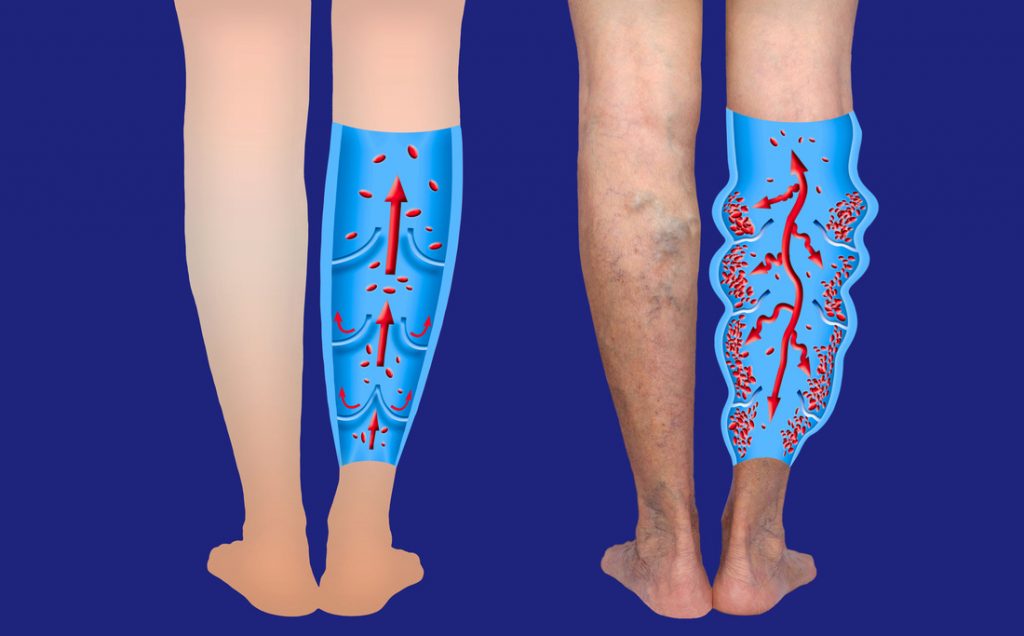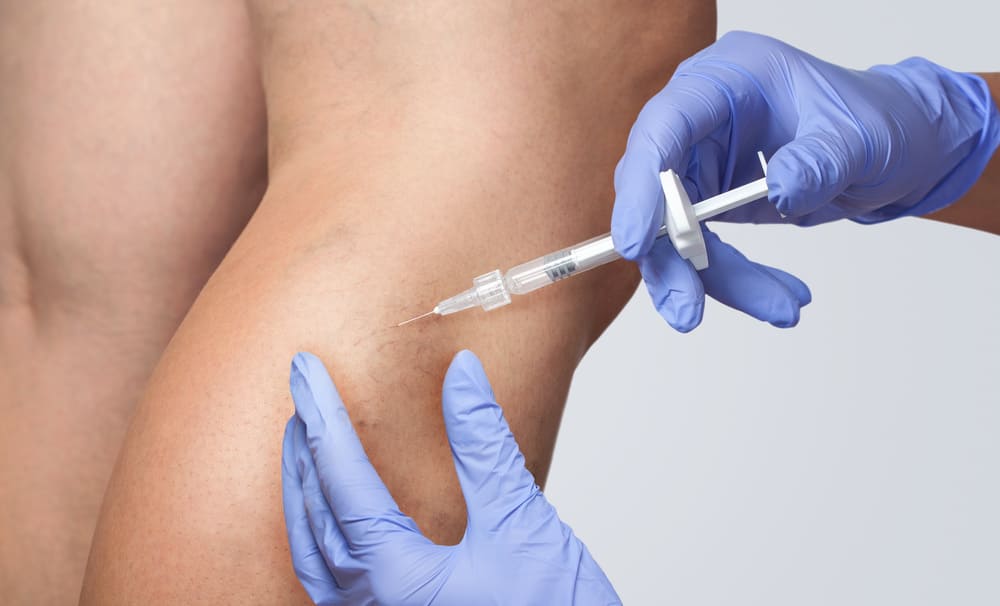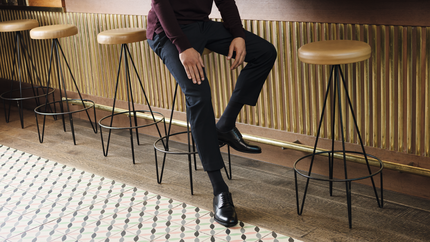Chronic Venous Insufficiency

Chronic venous disease is a common condition that affects the veins in the legs. These veins are responsible of sending the blood back to the heart. Normal veins have valves that open and close to direct the blood from the surface of the legs towards the deep leg veins, from which the calf muscle pumps the blood back to the heart.
If the valves in these veins fail to work properly, there is a blockage or the calf muscles don’t work properly, blood will flow backwards and pool in the legs. The pooled blood can then increase the pressure in the affected veins.
Symptoms of chronic venous insuficiency:
- Heavy and tired legs
- Painfull and aching legs
- Leg swelling
- Visible leg veins (spider, reticular and varicose)
- Skin changes
- Venous ulcers
Compressive Stockings
Compression stockings compress the calf muscle to help push the blood back to the heart more effectively for clients who have venous insufficiency.
This will reduce blood pooling in the lower leg and reduce the pressure in the vein system to slow down the progression of the disease.
At Medicalux, we have a Certified Sigvaris compression stocking fitter.
How does it work ?
Ask your primary healthcare provider (Doctor, Nurse Practitioner) for a compression stocking prescription (If you don’t have one we can help you).
Contact us to book an appointment for compression stocking fitting and order.
Are they covered by my healthcare plan?
Compression stockings are covered by most healthcare plans, they usually cover 80% and 2 pairs per year. Some even cover up to 6 pairs for years.
Sclerotherapy

Sclerotherapy is a non surgical treatment for varicose and spider veins which is performed in our clinic. Using a tiny needle, medication is injected.
The medication irritates the vein walls so that they stick together and are gradually reabsorbed by the body. Eliminating these diseased veins actually improves the circulation and makes the legs healthier.
What will happen in the first consultation?
You will be asked questions regarding your past health, medication history and symptoms. The Nurse practitioner or Nurse will examen your legs. You will have an opportunity to discuss your condition, the various treatments available and ask any questions. Frequently, the veins can be treated on the same day as the consultation.
What types of vein problems does the clinic treat?
Spider veins and varicose veins are the most common. Other vein problems include chronically swollen legs, recurrent infections, thrombophlebitis, and pregnancy-related problems.
How many treatments are required?
Depending on the type and severity of the varicose veins, the average number of treatments is anywhere between 3 and 5, however as many as 10 treatments may be required. The larger vessels only require a few (3 or 4) well placed injections with a stronger solution. They must be treated first. The smaller spider veins may require many points of injection using a weaker solution. The injections will be stopped at any time if the patient so requests. The number of injections is less important that the type of sclerosing agent used, its dosage, the site of the injections and the skill of the health care professional and their staff.





